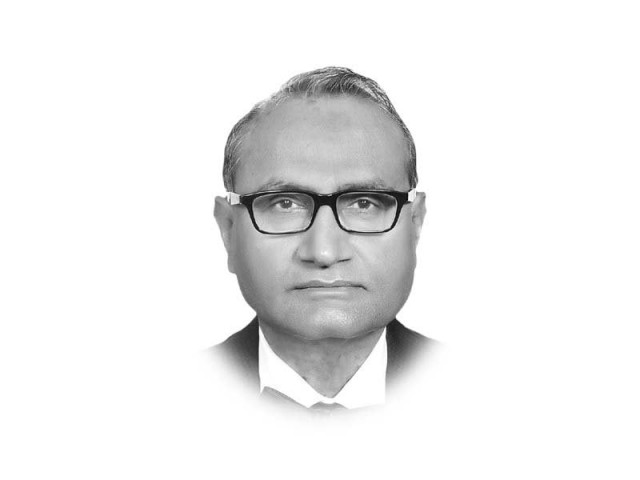Decent wage and social justice
Workers organised a seminar this week in Lahore in Bakhtiar Hall on the issue of decent wage and social justice

pervez.tahir@tribune.com.pk
Now the minimum wage in Pakistan is Rs15,000. While the workers have the gold price as a reference point, what is the reference point of the government for fixing the minimum wage? Is it the all-inclusive salary of Basic Pay Scale 1 of a government employee? This works out close to the minimum wage at Rs15,429, which actually suggests that even the BPS 1 determination is arbitrary and without a reference point, other than vague ideas about rising prices. There is an official poverty line based on the cost of basic needs. Using the Household Integrated Economic Survey (HIES) 2013-14, it estimated a poverty line of Rs3,030 per adult equivalent per month. The average household size was 6.35, which included 2.8 children — roughly an adult equivalence of five. The amount covering the cost of basic needs for this household size would be Rs15,150. However, the minimum wage in that year was Rs10,000.
The official estimates only produced a national poverty line. Minimum wage legislation is not applicable to farm labour. It should appropriately be compared with the urban poverty line. A separate poverty line for urban areas has been estimated by Haroon Jamal in the study Poverty and Vulnerability Estimates: Pakistan 2016, published by the Social Policy and Development Centre, Karachi. Using HIES 2015-16, he came out with an estimate of Rs3,627 on a per capita basis. With an average urban household size of 6.03, the cost of basic needs for the household would be Rs21,871. The minimum wage in that year was Rs13,000. There is a huge gap in the cost of basic needs and the minimum wage.
Section 7 of the Minimum Wage Ordinance 1961 authorises the Minimum Wage Board to review the minimum wage in the light of changing economic conditions and cost of living. The actual determination has, however, been assumed by the finance ministers. The federal finance minister announces it as part of the Finance Bill and the provincial finance ministers follow suit.
Minimum wage does not follow any norm, basic needs, living wage or decent wage. In effect, even the nominal minimum wage is not allowed to all the workers in the formal economy. The overall plight of the workers can be judged by the fact that the larger part of the economy is informal, which suffers from large deficits in terms of labour laws, social protection and regulatory framework. According to the Labour Force Survey 2014-15, 72.6 per cent of the employed labour force was in the informal sector. Rural areas are not covered by the minimum wage anyway. However, even in the urban areas, 69.2 per cent of the employed workers are in the informal sector, earning far less than the minimum wage.
Tu qadir o adil hai magar tere jahan mein
hain talkh bahut banda-e-mazdoor ke auqat
Published in The Express Tribune, October 13th, 2017.
Like Opinion & Editorial on Facebook, follow @ETOpEd on Twitter to receive all updates on all our daily pieces.















COMMENTS
Comments are moderated and generally will be posted if they are on-topic and not abusive.
For more information, please see our Comments FAQ